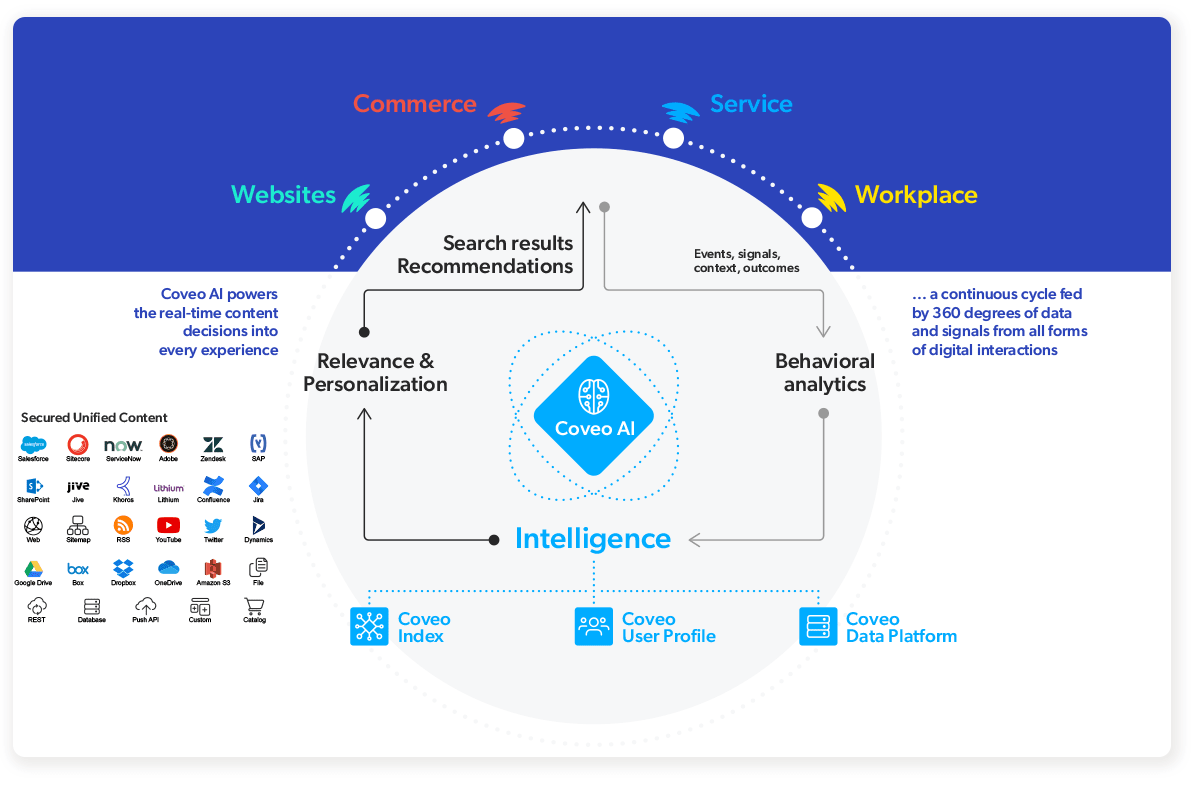You’ve probably heard of Moore’s Law: the idea that the number of transistors on a microchip doubles every two years.
The (revised) 1965 prediction by Intel co-founder Gordon Moore first appeared in an op-ed about the trajectory of technology over the next decade. Half a century later, it’s still relevant. It underpins technological advances across industries, from AI that can discover new molecules to the number of megapixels on your phone’s camera.
Growth moved forward – exponentially so. Once we reached one pinnacle, we never stopped reaching for the next. Which leaves us wondering: what does the future hold?
As our CEO Louis Têtu often says, we’re not living in a digital economy anymore. We’re in an experience economy. And in that context, a different take on Moore’s Law applies, he explained at our recent Relevance 360° Week: “Once you experience something better, you’re never going to go back.”
Setting Expectations Higher
When we talk about experience, we’re also talking about relevance. And relevance boils down to providing everyone who walks through your digital door with a personalized experience, tailored not only to their wants and needs but also to their expectations.
After all, expectations aren’t what they were 10 or even five years ago.
We live in a world where we can secure a supply of toilet paper in the middle of a global pandemic with the click of a button or a tap on a screen, and guarantee it’ll arrive on our doorstep the next day.
We no longer curate our own playlists – we expect them to curate themselves based on our favorite tunes.
We don’t skim a numerical list of channels to figure out what we want to watch; we simply browse shows and movies that are recommended to our tastes and watch them when we have a moment in our busy schedules.
This kind of service is no longer exceptional. “That has set a new set of expectations that is applicable throughout every business, in every digital experience,” says Têtu. And it has essentially trained us to look for convenience, selection, and value, on our terms. “We now seek interactions that are not product-centric. We don’t want to hear about what the companies want to tell us. We want companies and businesses to interact with us according to our needs and our specific context.”

Mastering Your Experience Destiny
If experience is the “why,” then data and AI are the “how.” Yet data is one key opportunity where companies often fall short, says Sucharita Kodali, CP and Principal Analyst at Forrester.
“What we have seen over the last couple of decades is a pretty heavy dependence on large technology companies,” she says. From the digital marketplaces where we sell products to the advertising platforms where we reach our audiences, businesses are giving up control over information about their best customers. “It often serves the benefit of the large technology companies, but not necessarily the brands.”
A 2021 Forrester report encourages companies to take back control over that precious data, and Kodali echoes that recommendation. She’s started to see customers holding onto their data and using it to more closely – and more directly – own their relationships with customers. Especially as the technology to do so becomes democratized with the same kind and quality of tools that the tech giants use at everyone’s disposal.
“By [being masters of their information], they not only are able to generate greater sales at greater margins, but they have this wonderful asset in the form of shopper data… that then they can use to do everything from delivering relevant experiences to developing relevant products in the future,” she says.
Going Beyond Purchases
But we’re not entirely sure what that future looks like, says Sameer Patel, Group SMP, CM/CRM at SAP. Experiences have changed over the pandemic as people relied more on eCommerce to do things like stock up on basic household supplies. The question now is: which experiences will stick over the long term?
“In my mind, it breaks down into three things as customers start to rewire themselves… there’s scale, there’s agility, and there’s relevance,” Patel points out. In many cases, this means businesses will have to reprioritize what’s most important as well. “We saw across our customer base 93% higher online order transactions between 2019 and 2020… You start to reprioritize what’s important, and I think relevance becomes a first-class citizen.”
Not just relevance in the world of online ordering, either (although eCommerce is certainly important). Relevance for customers who want to engage post-purchase for things like setup, warranties, repairs, and more.
“We’ve had a very siloed approach to relevance, frankly, where it’s been about making a certain person in their job more relevant,” says Patel. “How do you expand the relevance? How does your support person become a marketer for you? How does your support person become a salesperson?”
Moore’s Law, Meet AI
Those are the kinds of questions Coveo loves to answer. In fact, we’re built around giving each individual customer a personalized experience – and giving businesses a way to deliver those experiences at scale, for every customer, and across every team.
That’s where AI is uniquely positioned to deliver a superior digital experience. It allows us to track data about context and intent as people move through their digital journey. And it allows us to deliver the entire repertoire of knowledge that lives within our organization to the customers who need it, when they need it – often before they even realize they need it.
If the end goal is to enable people to do more on their own – buy easier, fix faster, learn more, connect better – then we need to truly understand relevance from the eyes of the beholder: the customer. “What people are really telling businesses, whether it’s in customer service, in sales or even in the workplace… is ‘don’t waste my time,’” Têtu says.
Because when you don’t follow Moore’s Law of Experience, your customers are only a browser tab away from a better alternative.

Dig Deeper
Ready to learn more about what your customers expect – and how relevance can help you meet them where they are? Be sure to catch the full Relevance 360 session, All You Need is AI-Powered Relevance.
And if you’d like to discover the power of personalization and intent, don’t miss our article, Delivering Search Personalization With User Intent.
Give everyone who interacts with your brand the right information, at the right time, every time—that is, always be relevant. The Coveo Relevance Maturity Model™ enables you to identify your level of relevance maturity today, where it could be, and what you need to do to get there.


